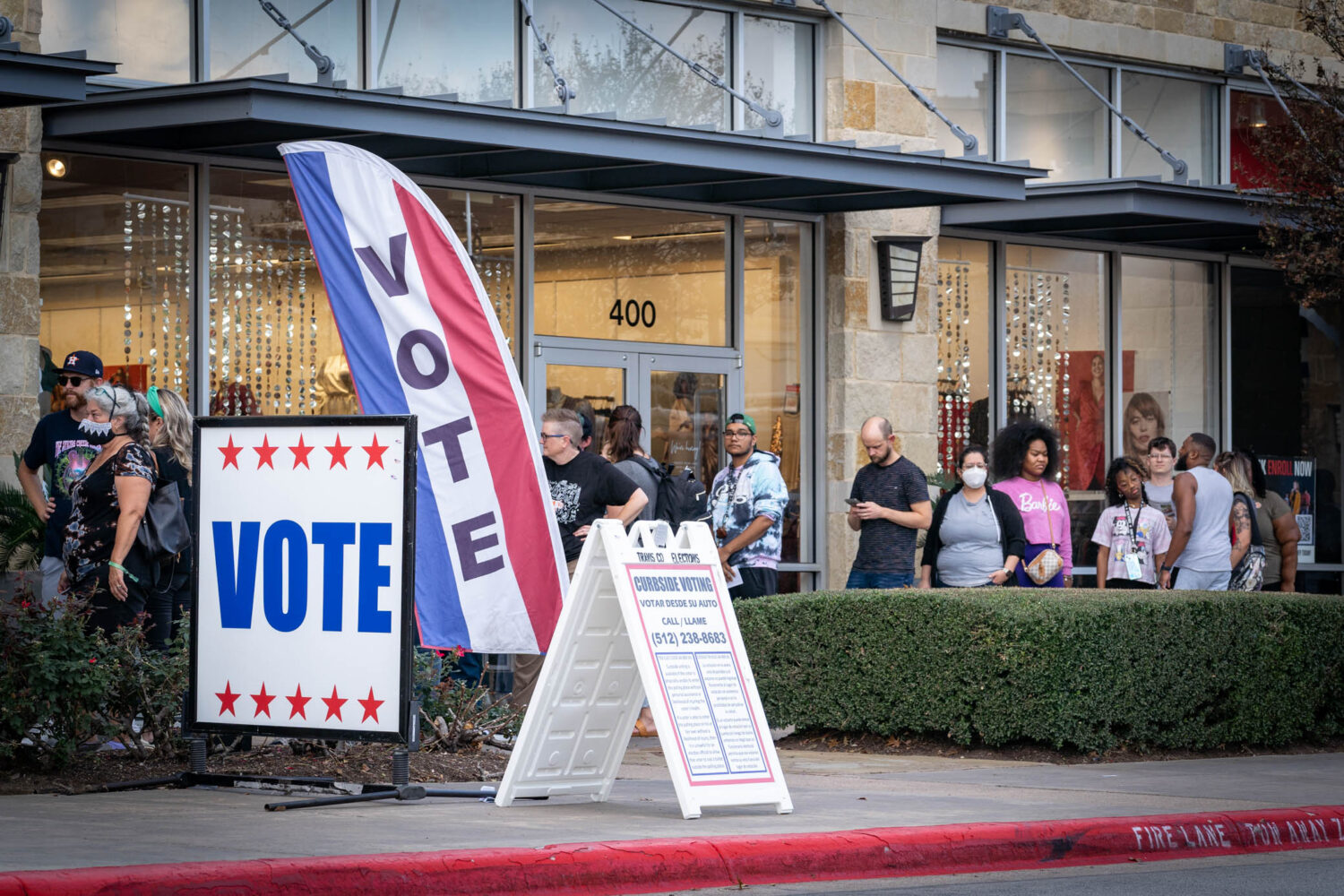The US Supreme Court hasruled that Donald Trump is immune from criminal prosecution for official acts conducted during his time as president but not unofficial acts. The ruling has a huge impact on cases connected to his attempts to overturn the results of the 2020 presidential election.
The former president’s defense has already been shot down by the federal judge overseeing the election interference case brought against him by special counsel Jack Smith, as well as by a unanimous panel of appeals court judges, the latter writing that Trump’s attempts to stay in power after losing the vote to Joe Biden four years ago represented “an unprecedented assault on the structure of our government.”
The court’s ruling could have profound consequences for holding former presidents accountable for crimes committed while occupying the White House.
But the court’s decision to take up the case – and to wait until the final day of its current session to issue a ruling – ensures that voters will not see a verdict in the case against Trump for unlawfully conspiring to overturn the last election before they cast their ballots in the next one this November.
Key Points
-
Supreme Court awards Donald Trump some immunity from prosecution
-
Trump says SCOTUS decision should end all cases against him
-
‘The President is now a king above the law’
-
Decision makes ‘mockery’ of principle ‘that no man is above the law’
-
Supreme Court weighs Trump’s immunity claim. Here’s what that means
Trump says decision should end all cases against him
17:14 , Oliver O’Connell
Donald Trump writes on Truth Social:
Today’s Historic Decision by the Supreme Court should end all of Crooked Joe Biden’s Witch Hunts against me, including the New York Hoaxes – The Manhattan SCAM cooked up by Soros backed D.A., Alvin Bragg, Racist New York Attorney General Tish James’ shameless ATTACK on the amazing business that I have built, and the FAKE Bergdorf’s “case.” PROUD TO BE AN AMERICAN!
17:10 , Oliver O’Connell
Former US Capitol Police Officer Harry Dunn said of the court’s decision:
“Donald Trump is still the single greatest threat to our democracy. It was true yesterday, and it’s true even more, even more, especially after this ruling. Right now, we don’t need nine Supreme Court justices to tell me that Donald Trump was responsible for January 6. I was there, those people that attacked us. They attacked us in His name, on his orders. I was there when Donald Trump encouraged a mob of supporters to march on the Capitol to try to overturn the results of a free and fair election. I remember it clearly while they were beating officers with flags. While they were there, they said they were there to stop the steal. When we told them to leave, they said ‘the President told us to come.’”
“Trump has said there will be a bloodbath if he loses again. Well, I know what a bloodbath looks like, because I saw one on January 6. Here’s the truth. I feel it will be worse if he regains power. Donald Trump has clear, clearly snapped, and he’s out for revenge. The stakes of this election have never been higher. This election is about a choice between Joe Biden, who ran for office to protect our democracy after he saw the mob at Charlottesville, and Donald Trump, who called those rioters very fine people.”
“This is not a drill. Donald Trump is the single greatest threat to the United States of America in a generation. We can’t let him anywhere in the Oval Office. Again. We can’t count on the Supreme Court or any institution to hold him responsible. It’s going to be up to the voters in November, and I look forward to helping elect Joe Biden as president.”
Don Jr hails ‘solid SCOTUS ruling’
17:08 , Oliver O’Connell
Solid SCOTUS ruling today.
I’m sure the corrupt prosecutors and DC judge will work overtime to continue their lawfare. It’s all they have left.
— Donald Trump Jr. (@DonaldJTrumpJr) July 1, 2024
Pelosi: Decision violates principle no one above law
17:05 , Oliver O’Connell
Former Speaker of the House Nancy Pelosi:
“Today, the Supreme Court has gone rogue with its decision, violating the foundational American principle that no one is above the law.
“The former president’s claim of total presidential immunity is an insult to the vision of our founders, who declared independence from a King. A seriously dangerous aspect of the ruling is its holding that official acts are inadmissible in trials for unofficial acts. With its delay, the Republican-appointed 6-3 Court gave the defendant a political gift.
“The Supreme Court placed itself on trial with this decision – and its credibility has been further diminished in the eyes of all those who believe in the rule of law.”
SCOTUS rules for a North Dakota truck stop in a new blow to federal regulations
17:00 , Oliver O’Connell
The Supreme Court opened the door Monday to new, broad challenges to regulations long after they take effect, the third blow in a week to federal agencies.
The justices ruled 6-3 in favor of a truck stop in North Dakota that wants to sue over a regulation on debit card swipe fees that the federal appeals court in Washington upheld 10 years ago.
Federal law sets a six-year deadline for broad challenges to regulations. In this case, the regulation from the Federal Reserve governing the fees merchants must pay banks whenever customers use a debit card took effect in 2011.
The deadline for lawsuits over the regulation was in 2017.
Corner Post, a truck stop in Watford City in western North Dakota, didn’t open its doors until 2018.
Continue reading…
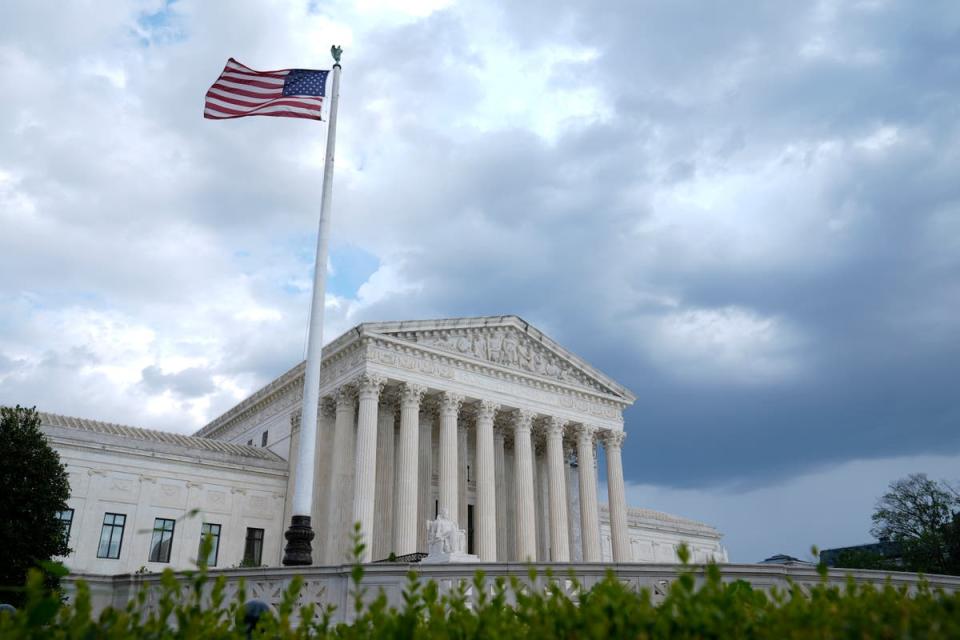
The Supreme Court rules for a North Dakota truck stop in a new blow to federal regulations
16:50 , Oliver O’Connell
I wrote a history of Watergate that was a finalist for the Pulitzer Prize last year. And let me tell you: When Nixon said “if the president does it, it’s not illegal,” no one believed that was true.
— Garrett M. Graff (@vermontgmg) July 1, 2024
16:40 , Oliver O’Connell
CREW: ‘Today’s decision is dangerous and devastating’
16:30 , Oliver O’Connell
Citizens for Responsibility and Ethics in Washington (CREW) President Noah Bookbinder, a former federal corruption prosecutor, released the following statement:
“Today’s decision is dangerous and devastating. Donald Trump’s attempts to claim absolute immunity do not hold up to even the barest scrutiny, but they have now largely been validated by our nation’s highest court. This threatens our system of democratic checks and balances by placing presidents above the rule of law, as well as throwing the future of Trump’s federal criminal cases into question.
“Despite this disastrous decision, Trump will likely still face charges for some of his efforts to overturn the 2020 election and his incitement of the insurrection. The District Court should move forward as quickly as possible to determine where immunity does and doesn’t apply in order to try the case this year.
“Accountability cannot wait. Congress must immediately enact legislation to prevent any president who engaged in insurrection against the Constitution—which two Colorado courts determined Trump did, and which the Supreme Court declined to absolve him of—from holding office again. The Court itself must acknowledge its ongoing ethics crisis and ensure that any justice who hears a case despite having a conflict of interest, as Justices Alito and Thomas appear to have done in this instance, faces consequences for violating the Court’s Code of Conduct and the law.”
What did Justice Barrett not agree with in the ruling?
16:20 , Oliver O’Connell
Justice Amy Coney Barrett joined Chief Justice John Roberts’ opinion with an exception to part III.
Barrett disagrees with how the majority rules that evidence from Donald Trump’s official acts should be excluded from a trial on charges for unofficial acts, writing that there was no reason to depart from the “familiar and time-tested procedure” that would allow for such evidence to be included.
An interesting part of today’s ruling: Justice Barrett disagrees with how the majority rules that evidence from Trump’s official acts should be excluded from a trial on charges for unofficial acts, writing that there was no reason to depart from the “familiar and time-tested…
— Kaitlan Collins (@kaitlancollins) July 1, 2024
Who wrote the opinion, who agreed, and who dissented?
16:10 , Oliver O’Connell
ROBERTS, C. J., delivered the opinion of the Court, in which THOMAS, ALITO, GORSUCH, and KAVANAUGH, JJ., joined in full, and in which BARRETT, J., joined except as to Part III–C. THOMAS, J., filed a concurring opinion. BARRETT, J., filed an opinion concurring in part. SOTOMAYOR, J., filed a dissenting opinion, in which KAGAN and JACKSON, JJ., joined. JACKSON, J., filed a dissenting opinion.
Read the full ruling here:
Full story: Supreme Court rules Donald Trump has some immunity in election interference case
16:00 , Oliver O’Connell
Donald Trump, and any future president, has some immunity from criminal prosecution for official actions, the Supreme Court ruled in one of the most consequential cases for the American presidency in the history of the office.
In a 6-3 decision released on Monday, the court rejected the former president’s broad suggestion of total immunity but said some of the actions laid out in the federal election interference indictment related to his official acts are protected.
Alex Woodward and Ariana Baio report.
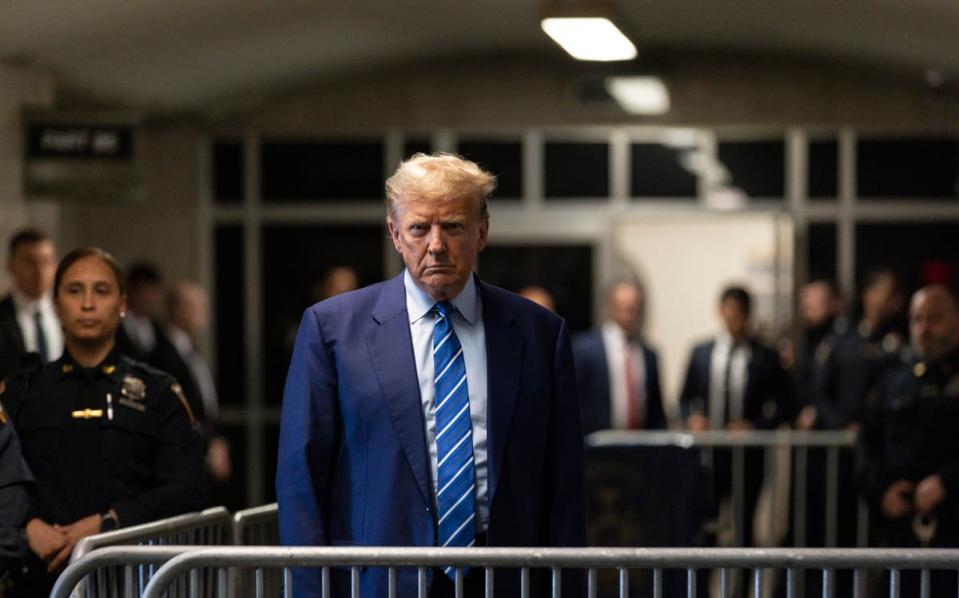

Supreme Court rules Donald Trump has some immunity in election interference case
Trump hails Supreme Court ruling
15:52 , Oliver O’Connell
15:51 , Oliver O’Connell
Alex Woodward explains what happens next:
This now gets kicked back to Judge Tanya Chutkan’s court. She will be tasked with determining whether all the actions listed in his indictment are “official” or “unofficial.”
There is absolutely no chance that will finish any time before the election or even after the inauguration, so Trump is not only granted a sweeping new metric for immunity if he’s in office again, but he gets even more delays and a diminishing prospect of any trial.
‘With fear for our democracy, I dissent’
15:48 , Oliver O’Connell
‘The President is now a king above the law’
15:44 , Alex Woodward
The dissents are vivid and terrifying, outlining how dangerous this ruling is, and the majority dismisses them as “fear-mongering.”
Here, Justice Sotomayor lists acts that she now says are immune from prosecution:
Looking beyond the fate of this particular prosecution, the long-term consequences of today’s decision are stark.
The Court effectively creates a law-free zone around the President, upsetting the status quo that has existed since the Founding. This new official-acts immunity now “lies about like a loaded weapon” for any President that wishes to place his own interests, his own political survival, or his own financial gain, above the interests of the Nation. … The President of the United States is the most powerful person in the country, and possibly the world. When he uses his official powers in any way, under the majority’s reasoning, he now will be insulated from criminal prosecution. Orders the Navy’s Seal Team 6 to assassinate a political rival? Immune. Organizes a military coup to hold onto power? Immune. Takes a bribe in exchange for a pardon? Immune. Immune, immune, immune. Let the President violate the law, let him exploit the trappings of his office for personal gain, let him use his official power for evil ends. Because if he knew that he may one day face liability for breaking the law, he might not be as bold and fearless as we would like him to be. That is the majority’s message today.
Even if these nightmare scenarios never play out, and I pray they never do, the damage has been done. The relationship between the President and the people he serves has shifted irrevocably. In every use of official power, the President is now a king above the law.
15:42 , Oliver O’Connell
Justice Ketanji Brown Jackson writes in dissent:
The majority of my colleagues seems to have put their trust in our Court’s ability to prevent Presidents from becoming Kings through case-by-case application of the indeterminate standards of their new Presidential accountability paradigm. I fear that they are wrong. But, for all our sakes, I hope that they are right.
In the meantime, because the risks (and power) the Court has now assumed are intolerable, unwarranted, and plainly antithetical to bedrock constitutional norms, I dissent.
Decision makes ‘mockery’ of principle ‘that no man is above the law’
15:40 , Oliver O’Connell
Justice Sonia Sotomayor writes in dissent:
Today’s decision to grant former Presidents criminal immunity reshapes the institution of the Presidency. It makes a mockery of the principle, foundational to our Constitution and system of Government, that no man is above the law. Relying on little more than its own misguided wisdom about the need for “bold and unhesitating action” by the President, ante, at 3, 13, the Court gives former President Trump all the immunity he asked for and more. Because our Constitution does not shield a former President from answering for criminal and treasonous acts, I dissent.
15:39 , Oliver O’Connell
The question then becomes whether that presumption of immunity is rebutted under the circumstances. It is the Government’s burden to rebut the presumption of immunity. The Court therefore remands to the District Court to assess in the first instance whether a prosecution involving Trump’s alleged attempts to influence the Vice President’s oversight of the certification proceeding would pose any dangers of intrusion on the authority and functions of the Executive Branch.
Trump asserts a far broader immunity than the limited one the Court recognizes, contending that the indictment must be dismissed because the Impeachment Judgment Clause requires that impeachment and Senate conviction precede a President’s criminal prosecution. But the text of the Clause does not address whether and on what conduct a President may be prosecuted if he was never impeached and convicted. … Historical evidence likewise lends little support to Trump’s position. The Federalist Papers on which Trump relies concerned the checks available against a sitting President; they did not endorse or even consider whether the Impeachment Judgment Clause immunizes a former President from prosecution. Transforming the political process of impeachment into a necessary step in the enforcement of criminal law finds little support in the text of the Constitution or the structure of the Nation’s Government.
We conclude that under our constitutional structure of separated powers, the nature of Presidential power requires that a former President have some immunity from criminal prosecution for official acts during his tenure in office. At least with respect to the President’s exercise of his core constitutional powers, this immunity must be absolute. As for his remaining official actions, he is also entitled to immunity. At the current stage of proceedings in this case, however, we need not and do not decide whether that immunity must be absolute, or instead whether a presumptive immunity is sufficient.
Supreme Court awards Donald Trump some immunity from prosecution
15:37 , Oliver O’Connell
Per the ruling of the Supreme Court in Trump v United States written by Chief Justice John Roberts:
Under our constitutional structure of separated powers, the nature of Presidential power entitles a former President to absolute immunity from criminal prosecution for actions within his conclusive and preclusive constitutional authority. And he is entitled to at least presumptive immunity from prosecution for all his official acts. There is no immunity for unofficial acts.
Moody v NetChoice LLC
15:28 , Oliver O’Connell
The next opinion is Moody v NetChoice LLC which means that the immunity decision will be last.
Justice Elena Kagan wrote the opinion on whether and to what extent states can enact laws prohibiting social media platforms from moderating content posted by users of their platforms.
The court holds that “the judgments are vacated, and the cases are remanded, because neither the 11th Circuit nor the 5th Circuit conducted a proper analysis of the facial First Amendment challenges to Florida and Texas laws regulating large internet platforms”.
Kagan’s opinion says that content moderation is “expressively activity” and that social media platforms are protected by the First Amendment from state intrusion.
Striking statement by a majority of the Supreme Court just now in the social media cases about the Fifth Circuit being out of step with the law: pic.twitter.com/n2V1dCXIrl
— Neal Katyal (@neal_katyal) July 1, 2024
15:21 , Oliver O’Connell
In her dissent, Justice Jackson urges Congress to enact a new law to “forestall the coming chaos” created by the ruling on Corner Post, reimposing the statute of limitations that had, until now, prevented new plaintiffs from endlessly challenging regulations.
She writes: “At the end of a momentous Term, this much is clear: The tsunami of lawsuits against agencies that the Court’s holdings in this case and Loper Bright have authorized has the potential to devastate the functioning of the Federal Government.”
Corner Post v Board of Governors of Federal Reserve System
15:03 , Ariana Baio
The first opinion today from the Supreme Court is Corner Post v Board of Governors of Federal Reserve System
It was written by Justice Amy Coney Barrett which means Justice Ketanji Brown Jackson does not have an opinion today.
The Supreme Court releases opinions in reverse order of seniority.
Supreme Court allows for laws criminalizing homelessness
15:00 , Joe Sommerlad
Here’s another beauty from Friday’s judgement drop.
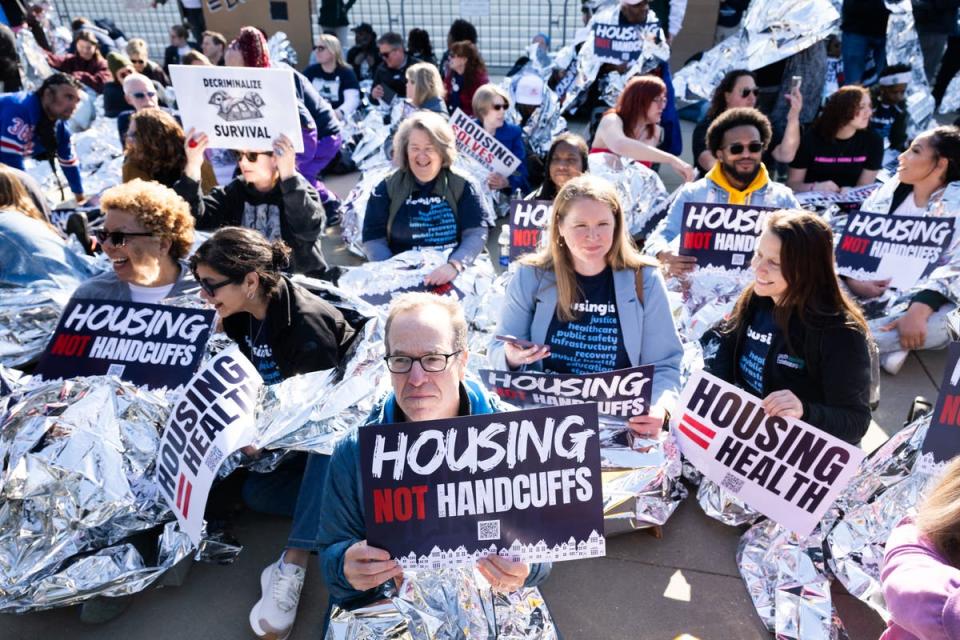

Supreme Court allows for laws criminalizing homelessness
Two boxes
14:59 , Ariana Baio
The court issued its five-minute buzzer — this is typically when we find out how many “boxes” will be placed out for the day. The number of boxes correlates to the number of opinions. Each box can hold up to two opinions.
Today we have two boxes, which was expected since the court has three opinions left.
How did justices react during oral arguments?
14:58 , Ariana Baio
Back in April, the Supreme Court heard arguments in Donald Trump’s immunity appeal and by the end, it appeared certain that they were inclined to offer the former president some immunity from criminal prosecution.
Most of the conservative male justices on the court expressed fear that without protections, political opponents could go after a former president.
But the liberal wing of the court, joined by conservative appointee Amy Coney Barrett, appeared skeptical about total immunity. Justice Ketanji Brown Jackson raised concerns about future presidents being “emboldened to commit crimes” knowing they have protections from prosecution.
Two months to make ruling
14:39 , Ariana Baio
Donald Trump’s immunity appeal is one of the last decisions to be made by the Supreme Court this term despite special counsel Jack Smith asking justices to decide the case quickly.
They heard oral arguments on April 25th — the last day of the arguments calendar — but it’s taken them more than two months to decide how they will rule.
The court is capable of making decisions fast, in December 2000 it only took one day to decide Bush vs Gore, and in 1971 it took four days to decide New York Times vs US.
Supreme Court overturns Chevron case that gave agencies oversight
14:30 , Joe Sommerlad
While we await news from the court today on Trump, here’s a look at some more of its recent highly-consequential recent judgements.
On Friday, thejustices broke with more than 40 years of precedent to hinder enforcement and oversight for federal agencies like the Environmental Protection Agency and Food and Drug Administration
In a 6-3 decision, the conservative majority of the Supreme Court handed down a ruling in an extraordinarily consequential case that will have intense ramifications for federal agencies and Congress.
Moving forward, agencies will need to turn to Congress and the courts to interpret how their respective branches function in ambiguous situations.
In the past, they were allowed to use their expertise to interfere with and enforce laws and regulations.
What does the Supreme Court’s latest decision mean for Jan 6 defendants?
14:00 , Joe Sommerlad
The Supreme Court’s decision to narrow how Jan 6 defendants may be charged with “obstruction of an official proceeding” will likely only impact a small number of convicted rioters.
“The decision will not have tremendous significance in the January 6 cases, including that of former president Trump, because in almost all cases there are other charges that have a felony status alongside the obstruction charge,” said William Banks, a professor at Syracuse University College of Law.
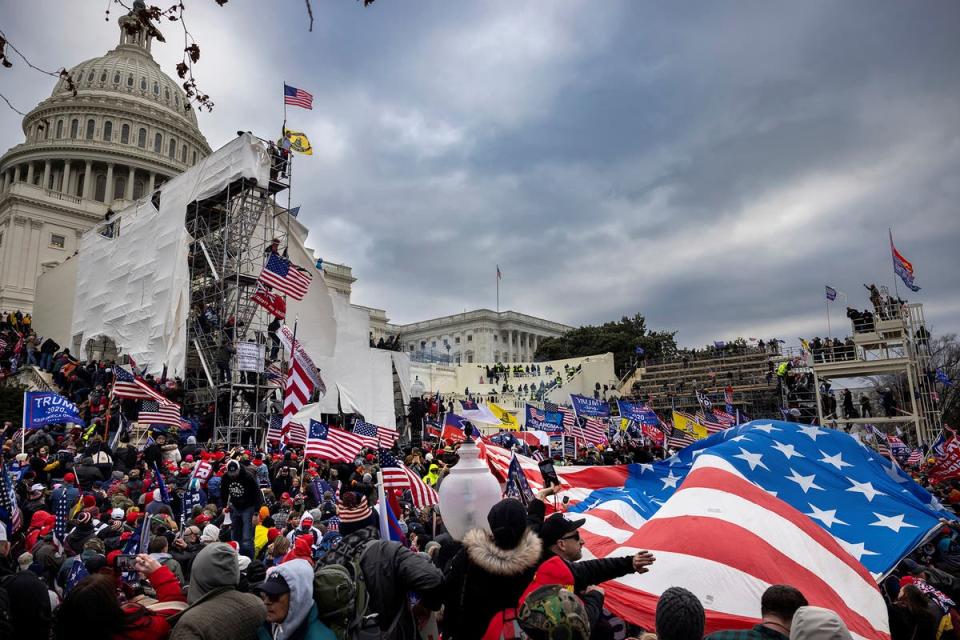

What does the Supreme Court decision mean for Jan. 6 defendants?
Over 300 January 6 riot convictions now in peril after Supreme Court rules on obstruction charge
13:30 , Joe Sommerlad
More than 330 January 6 rioters could have their convictions and sentences tossed thanks to a ruling from the Supreme Court on Friday.
In a 6-3 decision, the court ruled that an “obstruction of an official proceeding” charge brought against Joseph Fischer, a former police officer and rioter, was too broadly used and the government will need to prove that a defendant “impaired the availability or integrity for use in an official proceeding of records, documents, objects, or other things used in an official proceeding, or attempted to do so.”
The ruling could have massive impacts on Jan 6 defendants such as Fischer, who were convicted of storming the Capitol and destroying property to try and disrupt the certification of the 2020 election.
However, the ruling appears to have little impact on the pending charges against Trump, who is also accused of obstruction in some of his cases.
Ariana Baio reports.


Over 300 Jan. 6 riot convictions now in peril after court rules on obstruction charge
The Nixon rulings at the centre of Trump’s Supreme Court immunity case
13:00 , Joe Sommerlad
Both the former president and Justice Department special counsel Jack Smith cited court cases involving former president Richard Nixon to make their points for and against Trump’s immunity claim.
The Republican is pointing to the 1982 Supreme Court case Nixon v Fitzgerald to argue that he should be immune from prosecution on federal election interference charges.
Meanwhile, Smith is using the 1974 Supreme Court case United States v Nixon to argue that he should not be.
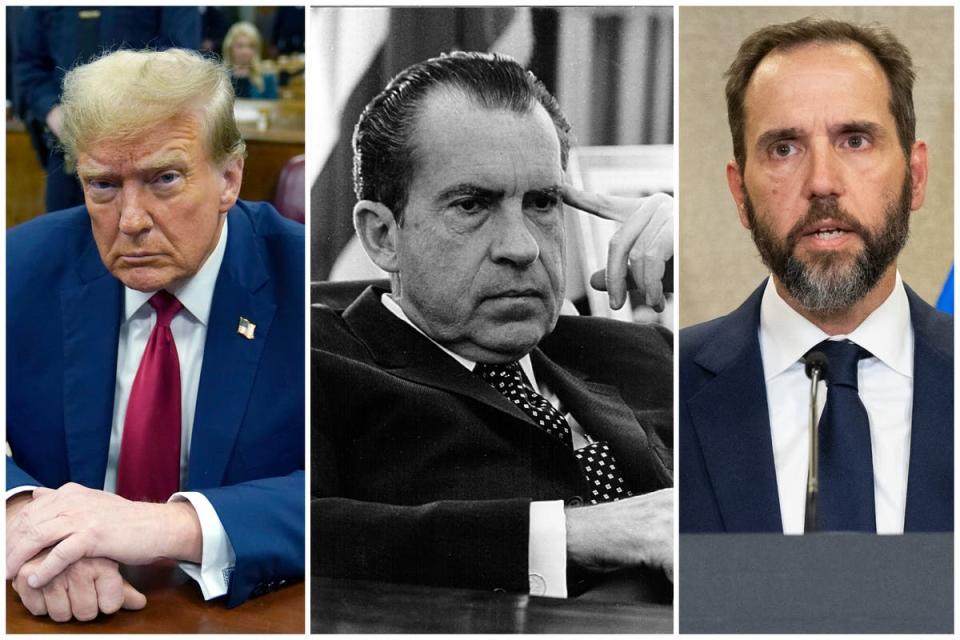

The Nixon rulings at the centre of Trump’s Supreme Court immunity case
Key takeaways from oral arguments
12:30 , Joe Sommerlad
The Supreme Court spent over three hours on April 25 hearing oral arguments in the historic case involving former president Donald Trump’s claims of presidential immunity from prosecution.
The nine justices questioned lawyers for Trump and the Justice Department’s special counsel and toyed with whether or not presidents should be awarded broad, some, or no immunity from criminal prosecution.
Here’s Ariana Baio with a reminder of the key points to emerge from that hearing.
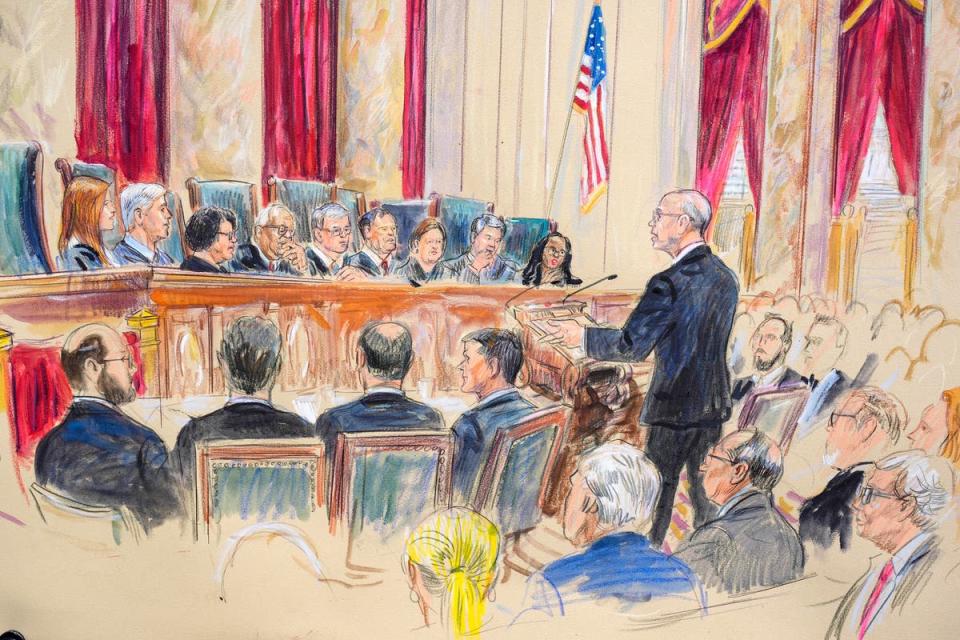

Key Takeaways from Trump’s immunity arguments at the Supreme Court
Supreme Court weighs Trump’s ‘presidential immunity’ claim. Here’s what that means
12:00 , Joe Sommerlad
Here’s Ariana Baio on precisely what it is the judges have been considering ahead of their ruling today.
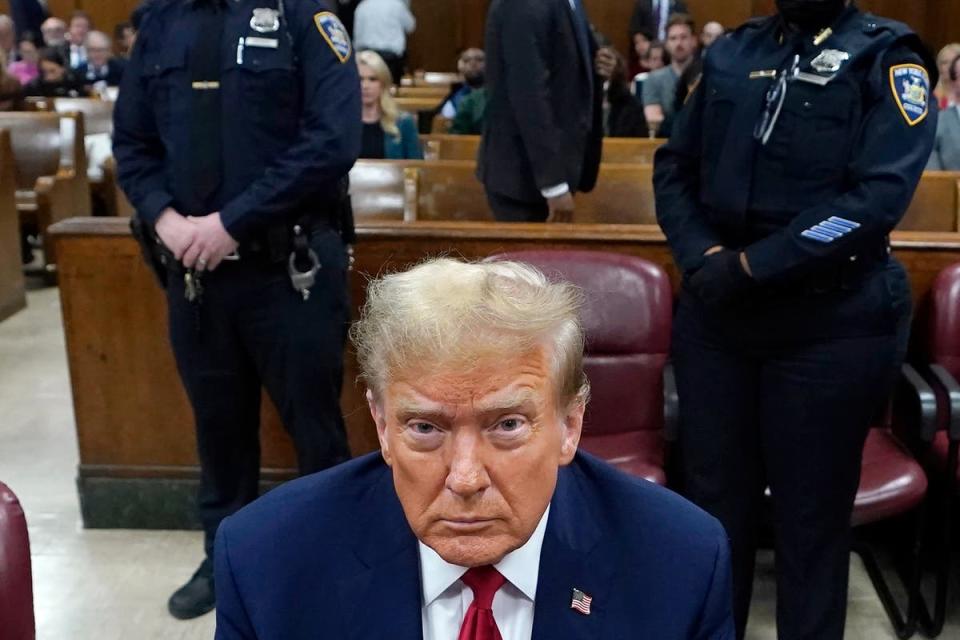

Supreme Court weighs Trump’s ‘presidential immunity’ claim. Here’s what that means
Trump makes last-ditch Truth Social appeal for absolute immunity
11:30 , Joe Sommerlad
The Republican presidential contender posted this on his social media platform overnight that commanders-in-chief “lliterally could not function” without knowing they are entirely free to do whatever they like in the Oval Office without fear of legal reprisals, despite all 44 of his predecessors and his successor managing to go about their business just fine.
Without Presidential Immunity, a President of the United States literally could not function! It should be a STRONG IMMUNITY, where proper decisions can be made, where our Country can be POWERFUL and THRIVE, and where Opponents cannot hold up and extort a Future President for… pic.twitter.com/QurlpNbBoK
— Donald J. Trump Posts From His Truth Social (@TrumpDailyPosts) June 30, 2024
Is Trump immune from prosecution? We’re about to find out
11:00 , Joe Sommerlad
The former president’s defense has already been shot down by the federal judge overseeing the election interference case brought against him, as well as by a unanimous panel of appeals court judges, the latter writing that Trump’s attempts to stay in power after losing the vote to Joe Biden four years ago represented “an unprecedented assault on the structure of our government.”
The question is now in the hands of the nation’s highest court.
Its answer could have profound consequences for holding former presidents accountable for crimes committed while occupying the White House.
But the court’s decision to take up the case – and to wait until the final day of its current session to issue a ruling – ensures that voters will not see a verdict in the case against Trump for unlawfully conspiring to overturn the last election before they cast their ballots in the next one this November.
Here’s the latest from Alex Woodward.
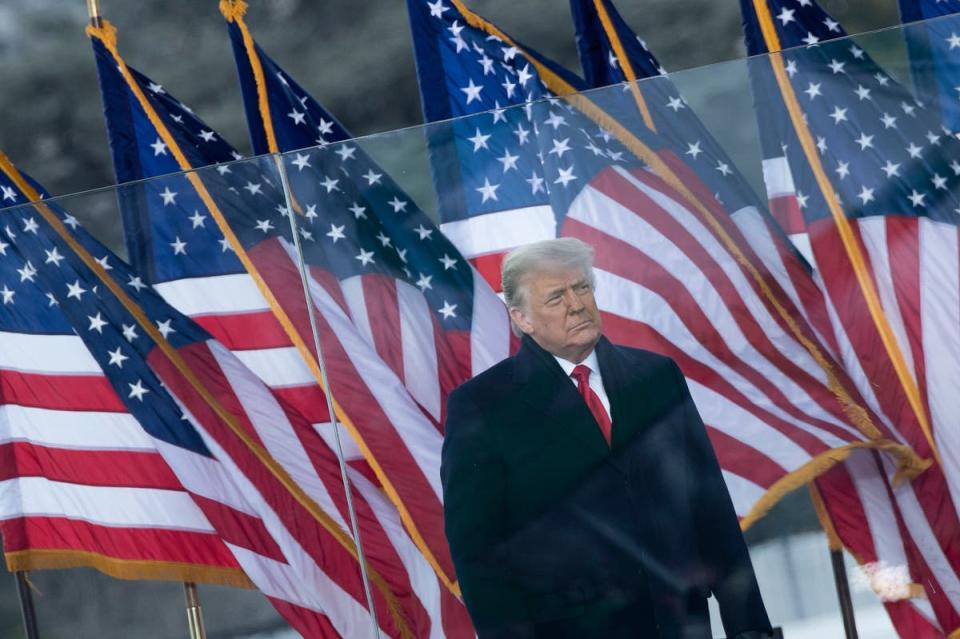

Is Trump immune from prosecution? Supreme Court will soon decide major question
Supreme Court chief justice says final decisions of term coming on Monday
10:30 , Joe Sommerlad
This was the last we heard from the court on Friday.
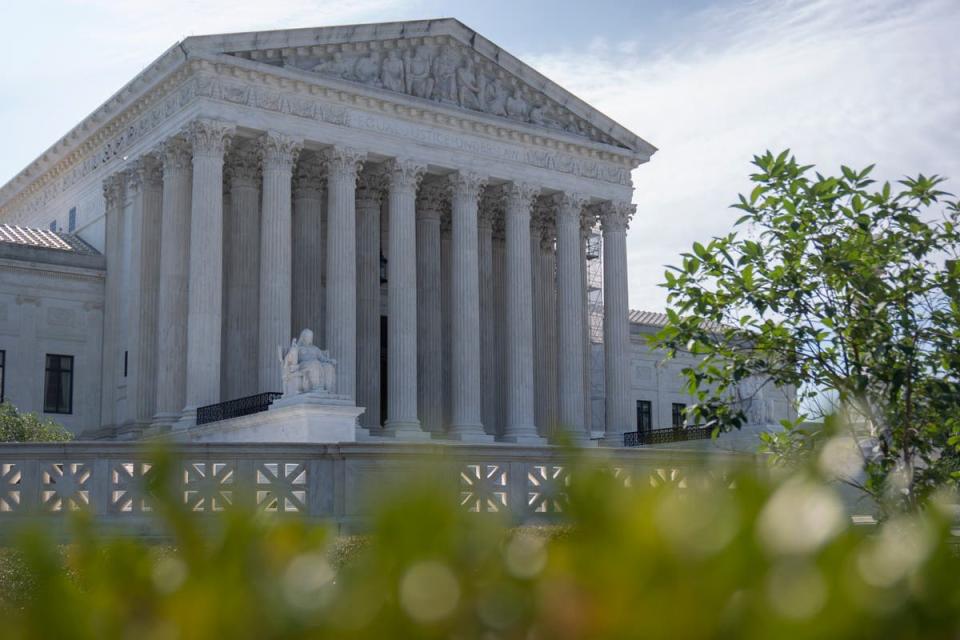

Justice John Roberts says the Supreme Court’s last decisions of this term are coming on Monday
.
Hello and welcome!
10:04 , Joe Sommerlad
Good morning and welcome to The Independent’s live coverage of the US Supreme Court as the nine justices prepare to hand down their long-awaited ruling on Donald Trump’s claim that he should be granted absolute immunity from criminal prosecution over any actions carried out during his tenure in the White House.
The justices heard oral arguments on the matter in late April but have waited until the final day of their legislative term to reveal their ruling, which is expected to have huge consequences for this year’s presidential election between Trump and Joe Biden.







